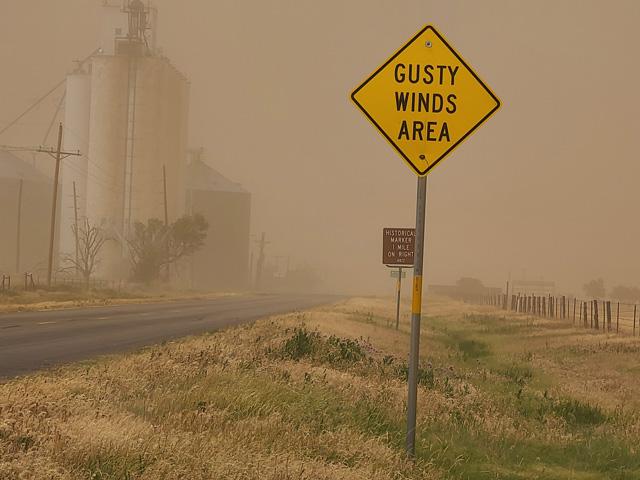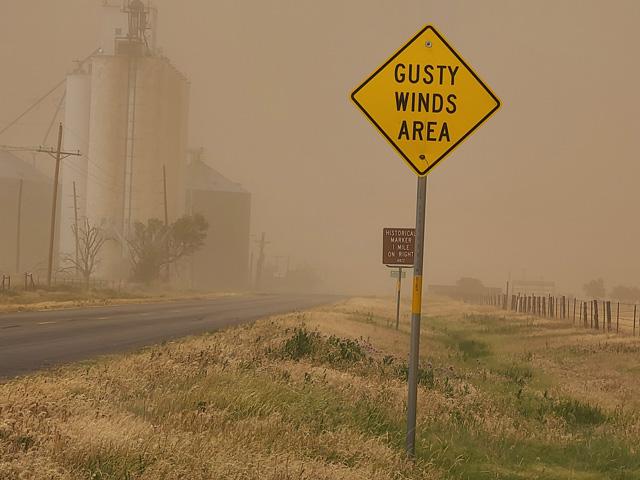Minding Ag's Business
Planting Season Stirs Up More Dust in Illinois: Are Farms Responsible If It Causes Highway Accidents?
A dust storm shut down an Illinois interstate on April 16, almost one year after blowing dust from freshly tilled fields caused a massive pile-up that killed eight people in the state.
On Tuesday, the Illinois State Police shut down a section of Interstate 72 in Sangamon County just west of Springfield and advised that conditions were deteriorating on Interstate 55 south of the city as well.
It's fortunate no death or damages were reported this time. The area is likely to be dry again Wednesday, DTN Ag Meteorologist John Baranick said, but could get up to half an inch of rain on Thursday.
"They're not overly dry though, so really this can happen anywhere, anytime a farmer goes and tills up his field when it's windy," he said.
After last year's storm -- on May 1, 2023, when more than 70 vehicles crashed -- a team of researchers from the University of Illinois, Cornell University and Texas A&M University received grant money from USDA to determine factors that caused the accident as well as identify potential mitigation strategies and policy solutions.
P[L1] D[0x0] M[300x250] OOP[F] ADUNIT[] T[]
The research will focus on how much climate factors like drought and soil moisture conditions contributed, how much farming activities like tillage and cover crops contributed and what role weather played.
"There are many dust storm studies on the dry land region in the western part of the United States, but there is very limited study in the Midwest," said Sheng Wang, the principal investigator on the project, in a news release describing the project. You can read more on it here: https://sustainability.illinois.edu/….
The research is expected to conclude in September, and I'm sure it will take Tuesday's dust-ups into account.
Last year after the multi-vehicle accident, DTN interviewed Rusty Rumley, a senior staff attorney at the National Agricultural Law Center. He said lawsuits involving dust are typically nuisance lawsuits; it's much rarer for dust to be the issue in a negligence lawsuit. "Negligence is the tort everyone knows about. If you get in an auto accident, and you sue, it's for negligence," Rumley told DTN.
Tiffany Lashmet, author of the Texas Ag Law Blog and associate professor with Texas A&M AgriLife Extension, told DTN last year that that negligence lawsuits are very fact specific. Using last year's dust storm in Illinois as an example, a potential plaintiff would have to prove that the farm practices related to planting were unreasonable. "This time of year in Illinois, is it reasonable to be working the ground? Obviously," she told DTN.
The other element plaintiffs must prove is causation: How do you prove it was the dust from a specific farm that caused the accident, versus from other farms in the county?
These points, however, don't mean a farmer can't be sued for blowing dirt if it caused an accident.
DTN published a more in-depth article several days after last year's accident that explored the question of whether farmers can be held legally liable for accidents caused by dust blowing off their farms. This included different scenarios farmers should consider and what they should have in their liability insurance policies. To see the complete article, go to the following link:
Katie Dehlinger can be reached at katie.dehlinger@dtn.com
Follow her on social platform X @KatieD_DTN
(c) Copyright 2024 DTN, LLC. All rights reserved.





Comments
To comment, please Log In or Join our Community .